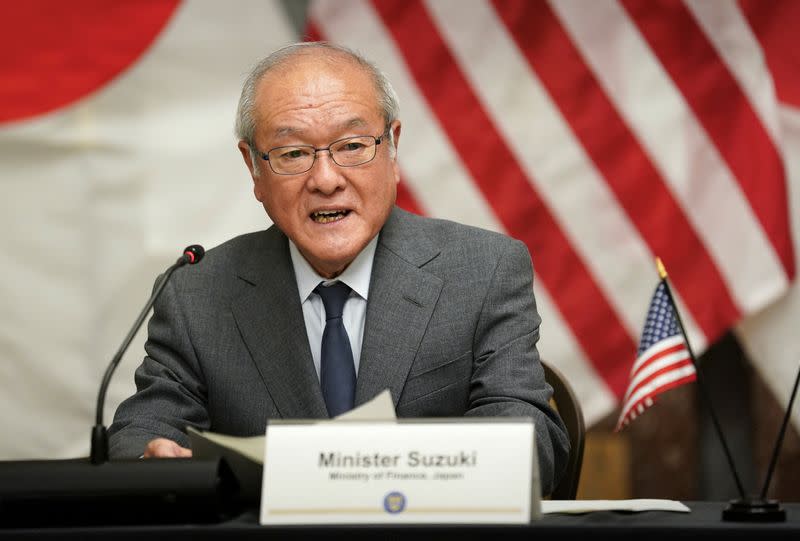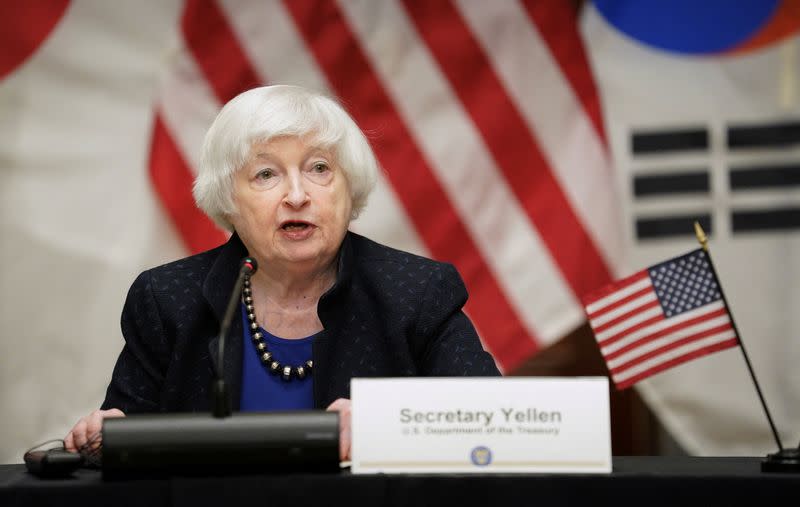Japan, US finance chiefs agree to closely communicate on FX
By Leika Kihara
WASHINGTON (Reuters) - Japan and the United States agreed to closely communicate on currency markets, Japanese Finance Minister Shunichi Suzuki said on Wednesday after a meeting with U.S. Treasury Secretary Janet Yellen.
"I explained Japan's view, which is that it's desirable for exchange rates to move stably, reflecting fundamentals, and that Japan will respond to excessive currency moves," Suzuki told reporters on what was discussed during the bilateral talks.
"I think our view was well understood," said Suzuki, who is visiting Washington to attend this week's International Monetary Fund (IMF) and G20 finance leaders' gatherings.
He declined to comment, when asked whether Japan could intervene in the currency market to prop up the yen.
Vice Finance Minister for International Affairs Masato Kanda, who oversees Japan's currency policy, also told reporters that authorities would not rule out any options in dealing with excessive yen moves.
"We are always exchanging views with other countries very frequently, so I think Japan's stance (on currency policy) is well understood" by its counterparts, Kanda said.
Kanda declined to comment, when asked about the possibility of joint intervention to slow the yen's declines.
(Reporting by Leika Kihara; Editing by Leslie Adler and Sandra Maler)

 Yahoo Finance
Yahoo Finance 

